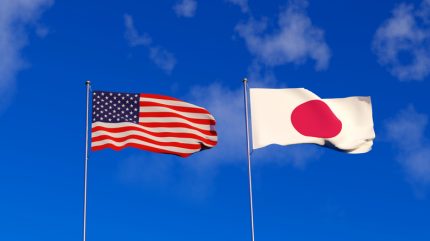
China has threatened Japan with economic retaliation after it imposed restrictions limiting sales and servicing of chipmaking equipment, according to a report by Bloomberg.
The position has been repeatedly outlined by Chinese officials in recent meetings with their Japanese counterparts.
The threat comes as the US has made strides in its global effort to curb China’s technological and military advancement. While Japanese restrictions do not mention China by name, the move was seen as a win for the US as officials have put pressure on Japan to align their policies.
The US has imposed many restrictions of its own, highlighting national security concerns.
Immediate fears
Toyota Motor, which is deeply involved in the country’s chip-making policy, warned that China could cut the supply of critical minerals that are vital for automotive production.
Tokyo Electron, a Japanese semiconductor gear producer, would also be greatly affected by export controls. The company sells chipmaking tools to China.

US Tariffs are shifting - will you react or anticipate?
Don’t let policy changes catch you off guard. Stay proactive with real-time data and expert analysis.
By GlobalDataUS officials have been reportedly working with Japan to find alternative supply chains, given China already imposed restrictions on exports of gallium, germanium and graphite last year.
The fear of China cutting the supply of important minerals has a historical precedent. In 2010, China temporarily suspended sales of rare minerals to Japan after a clash in the East China Sea, whose ownership is disputed by both countries.
US-led effort
The US has been transparent in its efforts to curb Chinese development and production of semiconductors and chips.
In December of 2023, the US Department of Commerce announced it would launch a survey of the semiconductor supply chain that aimed to “reduce national security risks posed by” China.
US Commerce Secretary Gina Raimondo said: “Over the last few years, we have seen potential signs of concerning practices from (China) to expand their firms’ legacy chip production and make it harder for US companies to compete.”
The results of these efforts have been mixed. Fortunately for the US, two of the other world leaders in semiconductor production are allies: Japan and the Netherlands. While these countries have imposed their own restrictions in dealing with China, the US wants them to strengthen these to enforce a harsher global blockade.
Disagreement over US involvement
While Japan may agree with the US on the importance of halting China’s technological development, there are mixed feelings over the extent of the US’ sway in the country’s economic policy.
An analyst with research company Omdia said: “Japan shouldn’t tighten its export control just because the US is making such a request.”
The feeling that the US may be wielding too much power is echoed behind the scenes, where a more draconian policy is being considered. A rarely enacted rule, the foreign direct product rule (FDPR), would allow Washington to control purchases of products made anywhere in the world if they contain even the tiniest bit of US technology.
The policy has not been invoked as of now, but senior officials have said they would not rule it out if a diplomatic solution cannot be reached.
If China’s threats come to fruition, the worst-case scenario could be a repeat of the 2010 dispute or worse. It is important to note that since that crisis, Japan has worked to decrease its reliance on Chinese supplies.
On the other hand, if they call the US’ bluff regarding the FDPR and it is imposed, that would be an unprecedented break in what has been one of Japan’s strongest alliances this century.



